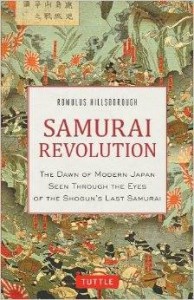The Japanese prime minister’s recent reinterpretation of Japan’s pacifist Constitution, which likely will enable its military to engage in war for the first time since World War II, has triggered outrage in Japan and other Asian nations, including China and South Korea. Japan’s postwar military, called the Self-Defense Forces, has thus far been limited mostly to defending the country. Prime Minister Shinzo Abe’s asserted right of “collective self-defense” would enable it for the first time to aid allies under attack, including for example shooting down a North Korean missile aimed at the United States. Abe’s recent remark that collective self-defense is as important as the Meiji Restoration has garnered significant attention.
The Meiji Restoration, which marked the return of power from the shogun to the emperor in 1868, is widely regarded as “the dawn of modern Japan.” One of the most tumultuous and violent periods in Japanese history, it kicked off the rise of Imperial Japan. Abe’s comparing it to strengthening the military should come as no surprise. His visit last December to Yasukuni Shrine in Tokyo, whose honored dead include WWII war criminals, caused an international uproar based on the shrine’s symbol of Imperial Japan’s military aggression and colonialism in Asia. Abe has long called for rewriting the Constitution to expand Japan’s military. His forebears, including his grandfather, Nobusuke Kishi, a prime minister in the 1950s, were from Choshu (modern-day Yamaguchi Prefecture). Choshu was one of two samurai clans most responsible for bringing about the Meiji Restoration. After the United States, Great Britain, France and others forced unfair trade treaties on the thus far isolated country in 1858, samurai from Choshu and other parts of Japan, most notably Satsuma (modern-day Kagoshima Prefecture), called for a “strong military and rich nation” under a newly restored monarchy to fend off Western imperialism. They developed a military strong enough to overthrow the shogun’s dynasty, which had ruled the country for over two and a half centuries.
After the Meiji Restoration, former samurai of Choshu and Satsuma dominated the Imperial government, including its powerful military, for over half a century. During that time, Japan defeated China and Russia in wars and colonized Taiwan and Korea. Choshu men continued to control Japan’s army until the 1920s. Samurai of Choshu are among the most revered in Japanese history, and their exploits of a century and a half past are widely depicted today in popular Japanese media including film, TV, books, animation, video games and manga comics. Certainly Prime Minister Abe is mindful of his forebears’ legacy as he asserts Japan’s right to have a standing army in face of China’s formidable threat of military dominance in Asia.
For updates about new content, connect with me on Facebook.
Read about the Meiji Restoration in Samurai Revolution.

